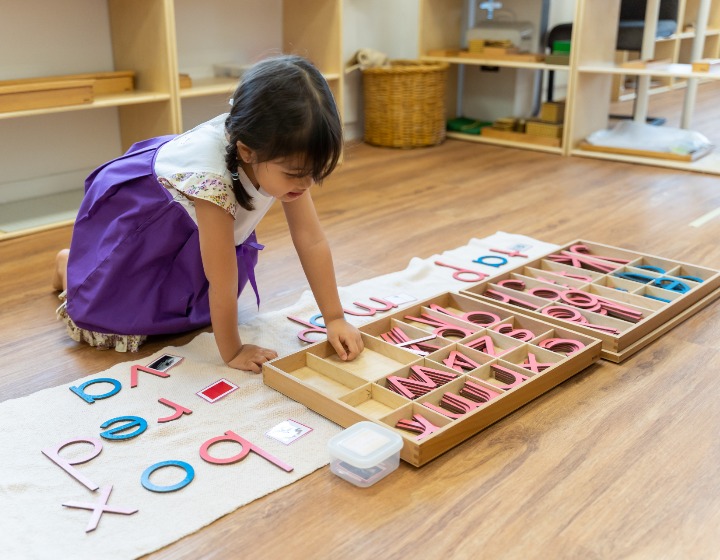Early Childhood Education is more than just child-minding or even learning the alphabet, counting and recognising colours. We understand these skills are important, but a holistic education means an investment in a more fruitful future with benefits that last a lifetime.
The four activities listed are part of th ‘Education for Life’ program, created to give your child the best start to their future and a life-long love of learning. The program covers seven key learning areas:
- Exploration
- Community & Culture
- Self-identity
- Scholastics
- Creative
- Thinking Skills
- Mind & Body

1. Multisport Classes – develop physical literacy while having fun
At Kids Club, we collaborate with sports clinics to bring programs tailored for little ones. The activities can be inside or outside and provide children the opportunity to develop their physical literacy. This gives them the knowledge and capability to be active, and the desire to stay active for life.
The activities can be inside or outside and provide children the opportunity to develop their physical literacy. This gives them the knowledge and capability to be active, and the desire to stay active for life.
Children who are confident while playing games will have more fun and therefore they will continue to seek out movement (and develop motivation). This means they learn new skills and master older ones, it helps develop a healthy lifestyle and incorporate fitness as a natural part of children’s lives. The concept seems simple, yet it’s so vital – especially as inactivity levels among children continues to increase.
These classes give children the chance to learn skills such as coordination, balance, confidence, respect, team work, leadership, memory and creativity.
Through the dance sessions, children develop a greater range of movement. They listen to the music, sing along and dance, which is important for self-expression. Children can’t always communicate their feelings through words, so it’s useful for them to have a healthy outlet for their emotions.

2. Music Lessons – ignite a child’s development
Incorporating music into early childhood education promotes social interaction and language growth. When done right, musical experiences teach children about emotion, language and impart abstract concepts in a simple manner – all important to help a child prepare for school.
Many studies have proven the power of music to enhance memory, improve confidence, strengthen learning capabilities and develop motor skills. Exposure to positive music experiences from early childhood helps children to speak more clearly, develop a larger vocabulary and strengthen the connection between the mind and body.
Music teaches children about the sounds and meanings of words. Songs that involve action and hand gestures that follow the music teach children to coordinate, as they move and sing at the same time. Music has a tempo and teaching young children songs that have rhythms and beats or learning to march in time to a tune can help students to learn the rhythm of speaking and improve their communication skills.
Parents and educators play a vital role in modelling a positive relationship with music. So, remember to dance, sing and play with your children. You might find yourself experiencing the benefits as well!

3. Yoga and Mindfulness – regulate emotion
Children derive enormous benefits from yoga. Physically, it enhances their flexibility, strength, coordination, and body awareness. In addition, their concentration improves, and they learn how to relax.
Yoga helps kids to:
- Develop body awareness
- Learn how to use their bodies in a healthy way
- Manage stress through breathing, awareness, meditation and healthy movement
- Build concentration
- Increase their confidence and positive self-image

4. Languages – teach skills like problem solving and creativity
Hola families 😊
A number of research studies have shown that children who have learned a second language at a young age demonstrate cognitive advantages, such as increased problem-solving skills and creativity.
Studying another language also helps children deal with abstract concepts.
Learning a language is not just about the vocabulary, it also entails learning about a new culture. In our multicultural society, it is important to learn about different cultures, communities and understand differences. This can aid children to develop friendships with many different people when they go to school.


